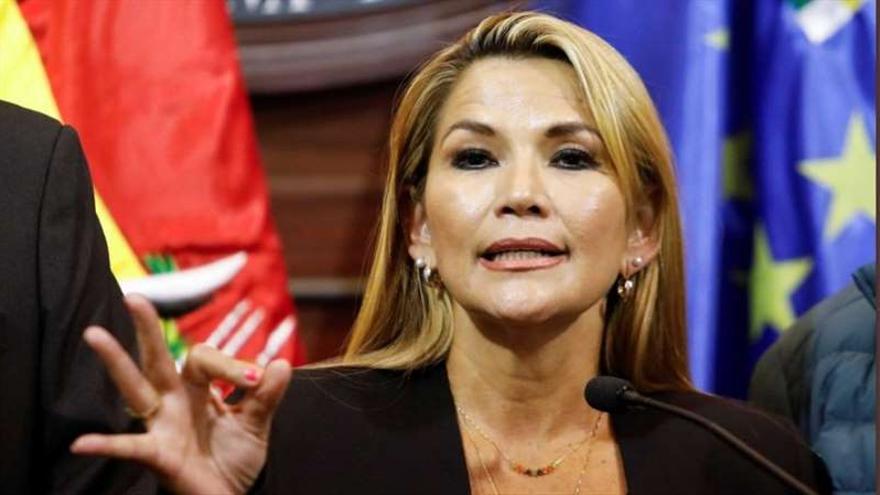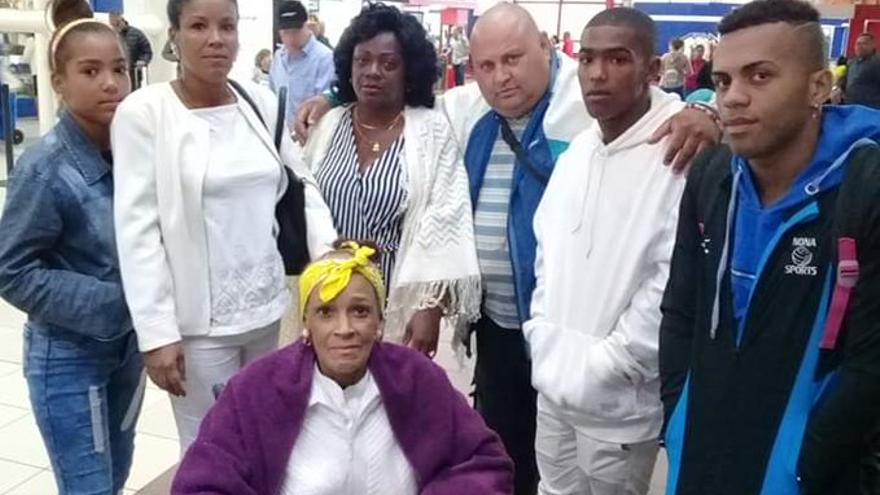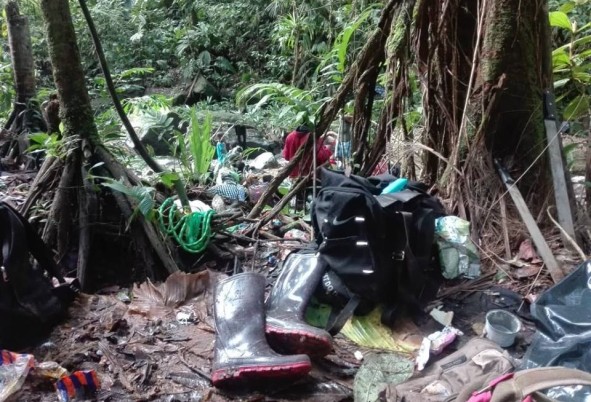
![]() EFE / 14ymedio, La Paz-Havana | January 24th, 2020 – The interim Government of Bolivia announced this Friday that it is suspending diplomatic relations with Cuba, due to the “permanent hostility and constant grievances” of its Government, although it clarified that it is not a total rupture.
EFE / 14ymedio, La Paz-Havana | January 24th, 2020 – The interim Government of Bolivia announced this Friday that it is suspending diplomatic relations with Cuba, due to the “permanent hostility and constant grievances” of its Government, although it clarified that it is not a total rupture.
“This determination is due to the recent and inadmissible expressions of Foreign Minister Bruno Rodríguez and the constant hostility and constant grievances of Cuba against the Bolivian Constitutional Government and its democratic process,” highlights a statement read in La Paz by the acting Foreign Minister of Bolivia, Yerko Núñez
“The Cuban Government has systematically affected the bilateral relationship based on mutual respect, the principles of non-interference in the internal affairs, the self-determination of peoples and the sovereign equality of States, despite the willingness of the Government of Bolivia to sustain cordial relations,” concludes the note. continue reading
Núñez, who is the acting chancellor when interim chancellor Karen Longaric is out of the country, showed on local media a Twitter message from Bruno Rodríguez in which he denounces “vulgar lies of the self-proclaimed coup in Bolivia”, referring to the transitional president Jeanine Áñez.
In this regard, the acting chancellor argued that the interim government of Bolivia “has to enforce sovereignty,” before what he described as “slanders” of the Cuban Executive.
Bolivia’s embassy in Havana remains, although the ambassador and other diplomatic personnel are expected to leave, with only officials in charge of procedures to serve mainly Bolivian students in Cuba remaining, according to Núñez.
However, the agreements between both countries are paralyzed, he stressed.
The Bolivian Ministry of Foreign Affairs explained that the suspension of relations is a measure similar to the rupture, with only a minimum diplomatic representation maintained in Havana; not all staff will be withdrawn, in order to attend to the “humanitarian affairs” of Bolivians with family in Cuba.
Bolivian former president Tuto Quiroga applauded the decision on Twitter. “Bolivia finally breaks with the gerontocracy Castro dictatorship. The Cuban embassies are centers of conspiracy and agitation in democratic countries; venues of vampire, colonial and repressive colonialism in Caracas; and offices of doctors’ enslavement.”
The president of Bolivia, Jeanine Áñez, revealed last Wednesday that the Government of Cuba kept 80% of the payments that Bolivia made for the work of Cuban doctors stationed in her country under the government of former president Evo Morales. She also said that only one-third of the Cubans were actually doctors.
“The program signed with Cuba that included the work of doctors, communicators and technicians, according to official statements, now reveals that less than a third were health professionals,” said Añez during a speech at the Government Palace on nation’s day.
“They had a salary of $1,040 USD, a stipend of 68 Bolivianos per day (USD $9.50), and air transportation expenses paid by the State, making a total of about 9,000 ($1,302 USD) Bolivianos for each of them,” She added .
Áñez regrets that only 20% of the money went to Cuban workers, since the other 80% was used to “finance Castro-communism, which has subjected and enslaved its people.”
The interim president also hammered the opacity with which the previous government treated Cuban doctors, without informing the State about the actual expenses on the island’s missions. According to the figures provided by the president, Morales handed over $147 million USD to Cuba as payment for doctors in his years of Government.
“With that money we could have performed 7,355 kidney transplants throughout the country, which would have represented half of the kidney patients in Bolivia,” said the president.
After Añez statements, the Cuban foreign minister, Bruno Rodríguez, responded angrily on his Twitter account. “Vulgar lies of the self-proclaimed coup leader in #Bolivia. Another sample of her servility to #EEUU. I should explain to the people that, after the [Cuban doctors] returned to #Cuba because of the violence they were subjected to, more than 454,440 medical appointments did not take place”.
The foreign minister added that “Two months without a Cuban medical brigade in #Bolivia translates into almost 1,000 women who have not had specialized assistance in their deliveries and 5,000 surgeries among those more than 2,700 eye operations not completed. They are not just figures, they are human beings.”
The Bolivian Foreign Ministry sent a letter to Bruno Rodríguez expressing his “profound annoyance for and rejection of” these words.
Translated by: Rafael (Tampa, Florida)
______________
COLLABORATE WITH OUR WORK: The 14ymedio team is committed to practicing serious journalism that reflects Cuba’s reality in all its depth. Thank you for joining us on this long journey. We invite you to continue supporting us by becoming a member of 14ymedio now. Together we can continue transforming journalism in Cuba.






















